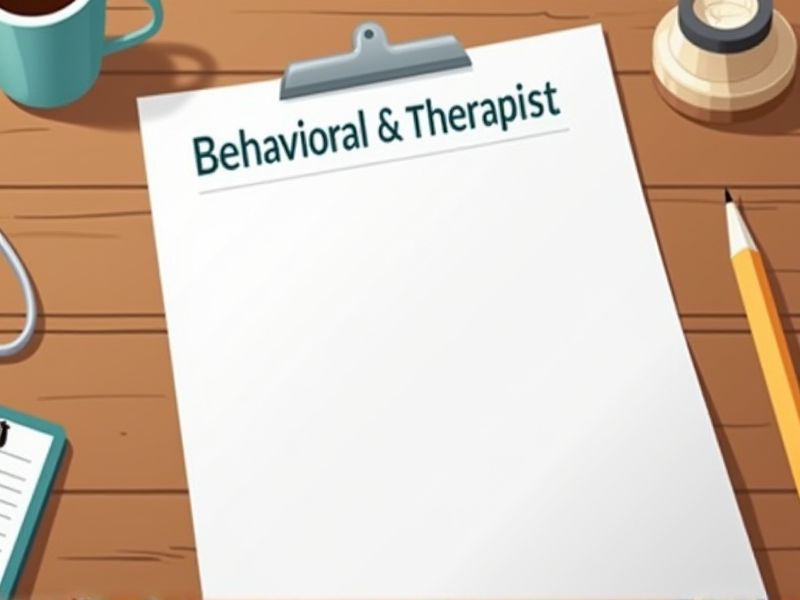
Behavioral Health Therapists work with individuals facing mental health challenges, making it crucial for them to possess specific certifications to ensure proper care and up-to-date knowledge. These certifications build trust among clients and validate a therapist's expertise and commitment to professional standards. Continuous professional development is vital in this field to adapt to evolving therapeutic methods and emerging mental health issues. Here are some important certifications needed for Behavioral Health Therapists.
Licensed Clinical Social Worker (LCSW)
Licensed Clinical Social Workers possess specialized training in understanding complex psychological and social dynamics, which enhances their effectiveness in behavioral health therapy. Their licensure permits them to diagnose mental health disorders, allowing for an accurate treatment plan. LCSWs provide a crucial link between clients and community resources, facilitating a comprehensive support network. Their expertise in therapeutic techniques aids in managing and improving behavioral health outcomes for clients.
Licensed Professional Counselor (LPC)
Licensed Professional Counselors (LPCs) offer specialized knowledge and training essential for effectively addressing complex mental health issues. They ensure that clients receive evidence-based treatments tailored to individual needs, contributing to better outcomes. LPCs provide crucial support in navigating emotional and psychological challenges, essential for improving life quality. Their expertise in various therapeutic modalities enables them to implement interventions that foster resilience and personal growth.
Licensed Mental Health Counselor (LMHC)
The need for a Licensed Mental Health Counselor (LMHC) arises because they possess the specialized training required to diagnose and treat mental health conditions effectively. LMHCs are essential in developing tailored therapeutic interventions that address the specific needs of individuals, promoting better mental health outcomes. The presence of LMHCs ensures compliance with regulatory standards, maintaining the quality and ethical standards of care in behavioral health therapy. Their licensure often enhances trust and credibility with clients, ensuring that people seek help in a supportive and professional environment.
National Certified Counselor (NCC)
The National Certified Counselor (NCC) credential ensures a behavioral health therapist meets high national standards of practice, which enhances client trust and credibility. Achieving the NCC designation indicates a commitment to continued education, keeping therapists updated with the latest interventions and ethical guidelines. The credential often facilitates easier cross-state work opportunities, crucial for telehealth services expanding access to care. NCC certification may also qualify therapists for a wider range of job opportunities and potentially higher salary prospects within the behavioral health field.
Certified Alcohol and Drug Counselor (CADC)
Certified Alcohol and Drug Counselors (CADCs) have specialized knowledge in addiction, which enhances a Behavioral Health Therapist's ability to address substance use disorders effectively. Their expertise ensures that integrated treatment approaches are employed, improving patient outcomes. CADCs provide evidence-based interventions that lower relapse rates in individuals with co-occurring mental health and addiction issues. The collaboration between CADCs and Behavioral Health Therapists promotes comprehensive care, meeting the diverse needs of clients dealing with substance use and mental health challenges.
Certified Clinical Mental Health Counselor (CCMHC)
The presence of a Certified Clinical Mental Health Counselor (CCMHC) in a behavioral health setting enhances the quality of care due to advanced training in diagnostic and therapeutic practices. A CCMHC's specialized skills in crisis intervention and trauma-informed care enable more effective treatment of complex mental health conditions. Their certification signals a commitment to ethical standards, bolstering client trust and therapeutic outcomes. The rigorous competency requirements of CCMHC certification ensure a comprehensive understanding of both emerging and established treatment methodologies, aligning with the evolving landscape of mental health care.
Certified Behavioral Health Technician (CBHT)
Certified Behavioral Health Technicians (CBHT) assist Behavioral Health Therapists by providing crucial support in implementing treatment plans, which enhances the overall effectiveness of therapeutic interventions. CBHTs often handle routine, yet essential tasks, allowing therapists to focus on the development of more comprehensive treatment strategies for patients. Their presence increases the continuity of care, ensuring that patients receive consistent support and monitoring throughout their treatment. Data suggests that a combination of CBHTs and therapists leads to improved patient outcomes due to the collaborative approach in addressing mental health needs.
Certified Psychiatric Rehabilitation Practitioner (CPRP)
The need for a Certified Psychiatric Rehabilitation Practitioner (CPRP) in Behavioral Health Therapy arises from the CPRP's expertise in recovery-oriented practices. CPRPs apply evidence-based strategies to help individuals build skills and access resources for independent living, which enhances therapy effectiveness. The credential ensures competence in collaborating effectively with diverse teams, thereby improving treatment outcomes. Employing a CPRP in therapy settings results in more holistic and person-centered care, aligning with contemporary mental health standards.
Certified Addiction Counselor (CAC)
Certified Addiction Counselors possess specialized knowledge and skills, enabling them to address substance abuse issues effectively. Their certification ensures they meet established professional standards, enhancing the credibility of behavioral health practices. Counselors with certification can apply evidence-based strategies, contributing to improved patient outcomes. Many organizations and insurance providers require or prefer certified professionals, making certification crucial for career opportunities and client trust.
Certified Trauma Professional (CTP)
The presence of a Certified Trauma Professional (CTP) in behavioral health therapy is essential as it ensures that therapists possess specialized knowledge to effectively address and treat trauma-related issues, which are prevalent in many mental health cases. Trauma-informed care reduces the risk of re-traumatization, enhancing the therapeutic process and clients' recovery outcomes. Evidence suggests that understanding and integrating trauma-specific treatment approaches can significantly improve therapeutic efficacy. Certification in trauma helps therapists to stay current with best practices and research, ensuring the highest standard of care for patients.
Summary
With certifications, you may gain increased credibility, potentially leading to more client trust. Enhanced skills from specialized training often improve therapy outcomes. Certifications could open opportunities for career advancement and higher salaries. Your expanded network through workshops and seminars might facilitate impactful collaborations.
